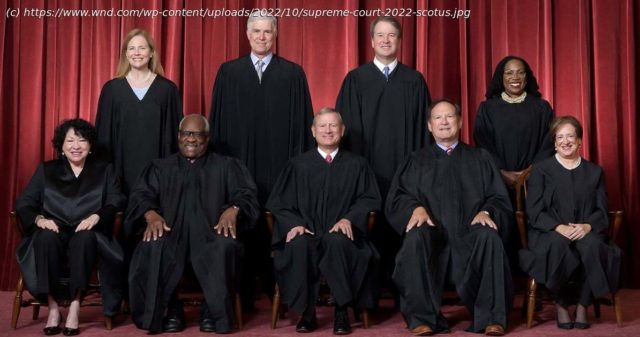Array
Last week the Supreme Court issued its landmark decision that Lorie Smith, a Colorado-based Christian graphic artist and web designer, did not have to create content that violated her beliefs. In response, Clara Jeffery, editor-in-chief of Mother Jones, tweeted, „perhaps gay stylists, designers, caterers, and planners should start withholding services from Christian conservatives and see where that goes.“ After all, Jeffery reasoned, if a Christian can decide not to create content for a gay couple, surely gay professionals can decline services to Christian conservatives.
More extreme was the reaction of actor Michael Imperioli who posted on Instagram, „I’ve decided to forbid bigots and homophobes from watching The Sopranos, The White Lotus, Goodfellas or any movie or TV show I’ve been in. Thank you Supreme Court for allowing me to discriminate and exclude those who I don’t agree with and am opposed to. USA! USA!“
In her strong dissenting opinion, Justice Sonia Sotomayor argued, „Today, the Court, for the first time in its history, grants a business open to the public a constitutional right to refuse to serve members of a protected class.“ And she claimed that the ruling comes amid a „backlash to the movement for liberty and equality for gender and sexual minorities.“
Get the hottest, most important news stories on the internet – delivered FREE to your inbox as soon as they break! Take just 30 seconds and sign up for WND’s Email News Alerts!
Many headlines reflected similar sentiments, such as this one posted on the U.K. Guardian: „US supreme court strikes blow against LGBTQ+ rights with Colorado ruling.“
In reality, the ruling did no such thing, and Justice Neil Gorsuch was right to challenge Sotomayor’s arguments. He stated that Sotomayor’s dissenting opinion „reimagines the facts“ from „top to bottom.“ He also argued that she failed to answer the fundamental question of, „Can a State force someone who provides her own expressive services to abandon her conscience and speak its preferred message instead?“
In his view, what Sotomayor was arguing for was for the court to allow the government to force an individual to „speak contrary to her beliefs on a significant issue of personal conviction.






